
Filter News
Area of Research
- Advanced Manufacturing (1)
- Biology and Environment (9)
- Computational Biology (1)
- Computational Engineering (1)
- Computer Science (6)
- Electricity and Smart Grid (1)
- Energy Science (9)
- Functional Materials for Energy (1)
- Fusion and Fission (1)
- Materials (12)
- Materials for Computing (1)
- National Security (12)
- Neutron Science (7)
- Supercomputing (57)
News Topics
- (-) Artificial Intelligence (131)
- (-) Quantum Computing (53)
- (-) Statistics (4)
- 3-D Printing/Advanced Manufacturing (146)
- Advanced Reactors (40)
- Big Data (79)
- Bioenergy (112)
- Biology (128)
- Biomedical (73)
- Biotechnology (39)
- Buildings (74)
- Chemical Sciences (86)
- Clean Water (33)
- Composites (35)
- Computer Science (226)
- Coronavirus (48)
- Critical Materials (29)
- Cybersecurity (35)
- Education (5)
- Element Discovery (1)
- Emergency (4)
- Energy Storage (114)
- Environment (218)
- Exascale Computing (67)
- Fossil Energy (8)
- Frontier (64)
- Fusion (66)
- Grid (74)
- High-Performance Computing (130)
- Hydropower (12)
- Irradiation (3)
- Isotopes (62)
- ITER (9)
- Machine Learning (68)
- Materials (157)
- Materials Science (158)
- Mathematics (12)
- Mercury (12)
- Microelectronics (4)
- Microscopy (56)
- Molten Salt (10)
- Nanotechnology (64)
- National Security (86)
- Neutron Science (171)
- Nuclear Energy (122)
- Partnerships (68)
- Physics (69)
- Polymers (35)
- Quantum Science (93)
- Security (31)
- Simulation (65)
- Software (1)
- Space Exploration (26)
- Summit (71)
- Transportation (103)
Media Contacts
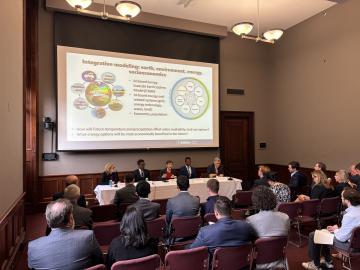
Prasanna Balprakash, director of AI programs for ORNL, discussed advancing climate and weather research through high performance computing and artificial intelligence as part of a September 18 panel for the United States Senate.
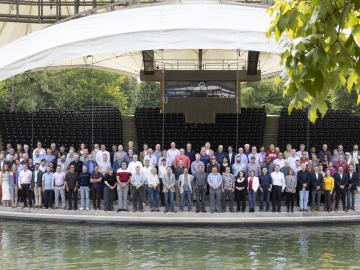
The Smoky Mountain Computational Sciences and Engineering Conference, or SMC24, entered its third decade with the 21st annual gathering in East Tennessee.

A new Global Biomass Resource Assessment developed by ORNL scientists gathered data from 55 countries resulting in a first-of-its kind compilation of current and future sustainable biomass supply estimates around the world.

A new technology to continuously place individual atoms exactly where they are needed could lead to new materials for devices that address critical needs for the field of quantum computing and communication that cannot be produced by conventional means.

A study led by the Department of Energy’s Oak Ridge National Laboratory details how artificial intelligence researchers created an AI model to help identify new alloys used as shielding for housing fusion applications components in a nuclear reactor. The findings mark a major step towards improving nuclear fusion facilities.

The Oak Ridge Leadership Computing Facility welcomed users to an interactive meeting at the Department of Energy’s Oak Ridge National Laboratory from Sept. 10–11 for an opportunity to share achievements from the OLCF’s user programs and highlight requirements for the future.
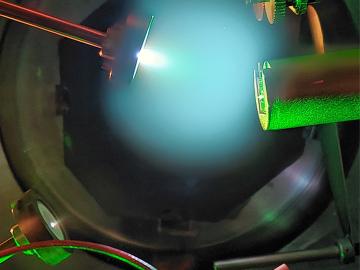
In a game-changing study, ORNL scientists developed a deep learning model — a type of artificial intelligence that mimics human brain function — to analyze high-speed videos of plasma plumes during a process called pulsed laser deposition.

A team led by scientists at ORNL identified and demonstrated a method to process a plant-based material called nanocellulose that reduced energy needs by a whopping 21%, using simulations on the lab’s supercomputers and follow-on analysis.
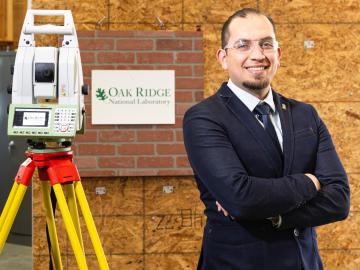
As a mechanical engineer in building envelope materials research at ORNL, Bryan Maldonado sees opportunities to apply his scientific expertise virtually everywhere he goes, from coast to coast. As an expert in understanding how complex systems operate, he’s using machine learning methods to control the process and ultimately optimize performance.
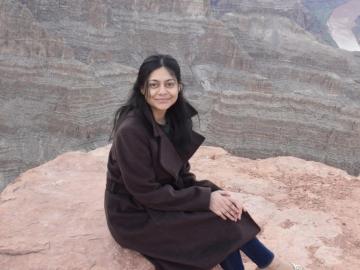
A research scientist with the Department of Energy’s Oak Ridge National Laboratory, Ayana Ghosh was named the 2024 Early Discovery Award winner by the American Ceramic Society. The award recognizes an early career member of the organization who has contributed to basic science in the field of glass and ceramics.


